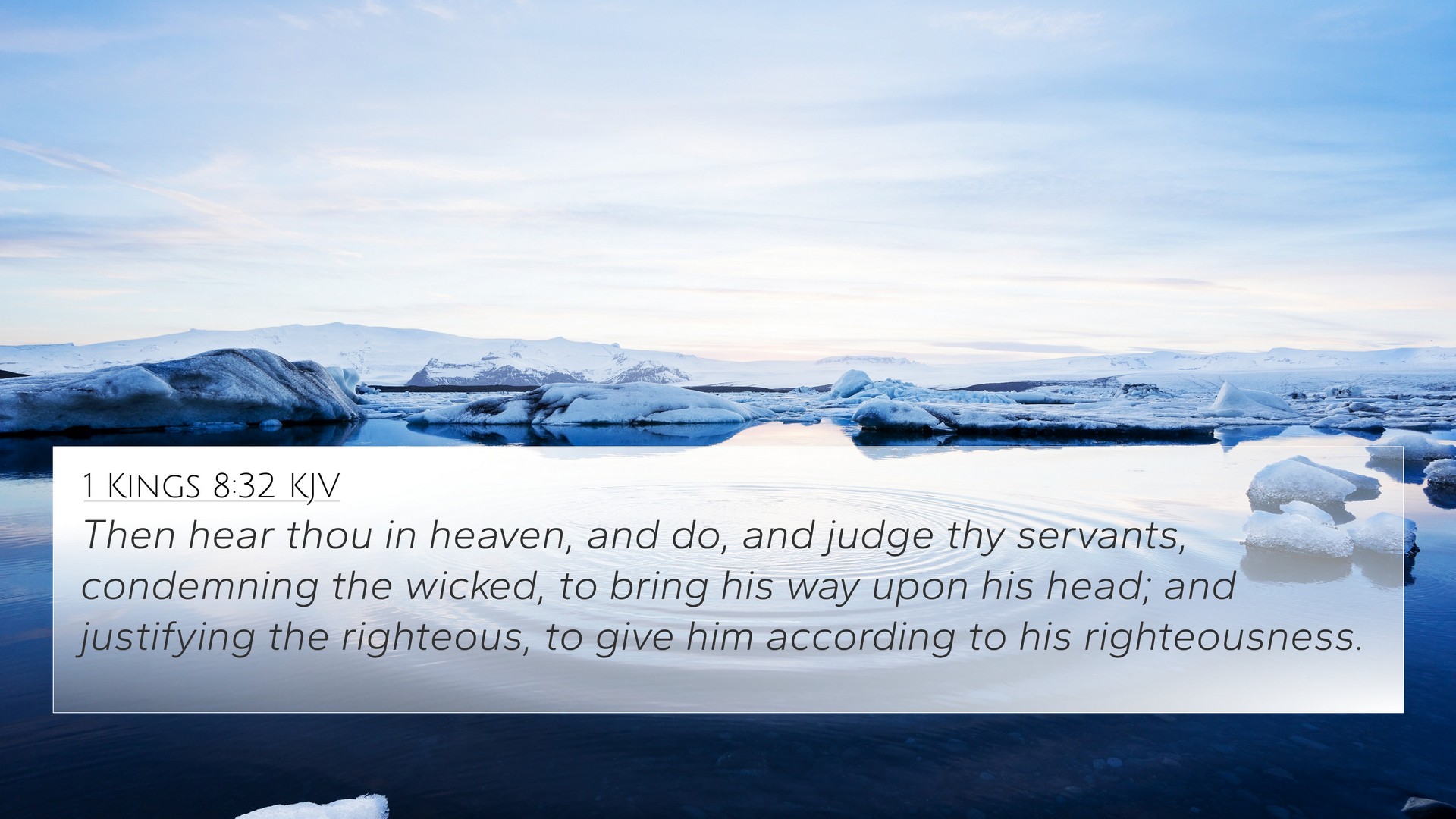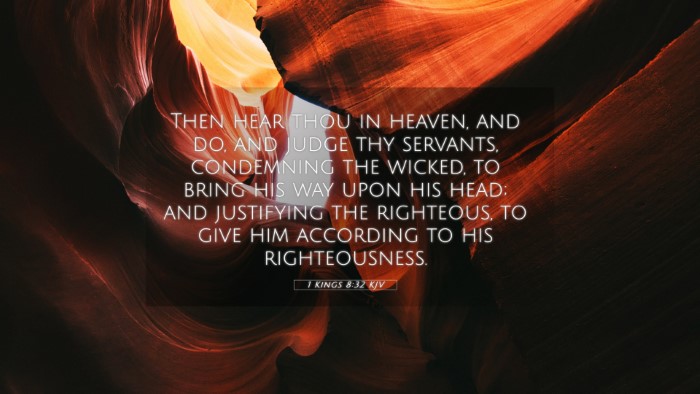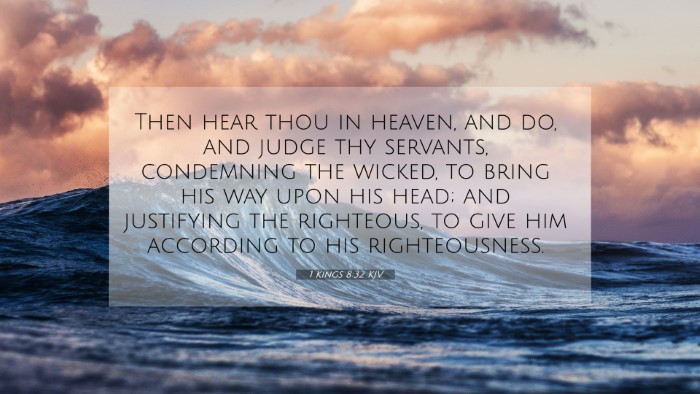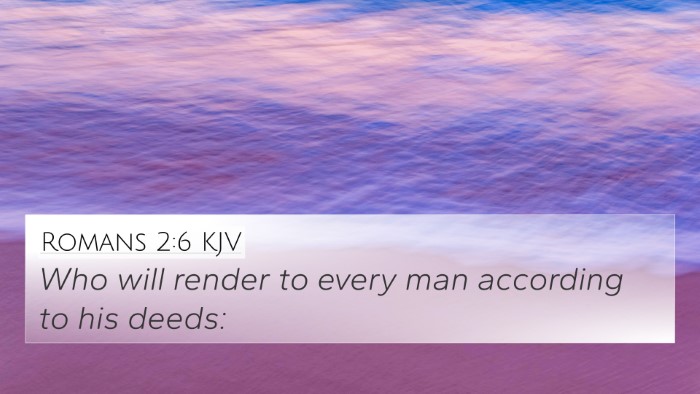This section features a detailed cross-reference designed to enrich your understanding of the Scriptures.
Below, you will find carefully selected verses that echo the themes and teachings related to 1 Kings 8:32 KJV. Click on any image to explore detailed analyses of related Bible verses and uncover deeper theological insights.
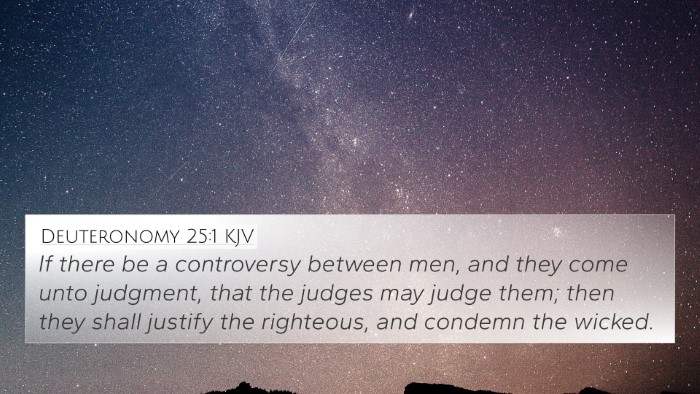 Deuteronomy 25:1 (KJV) »
Deuteronomy 25:1 (KJV) »
If there be a controversy between men, and they come unto judgment, that the judges may judge them; then they shall justify the righteous, and condemn the wicked.
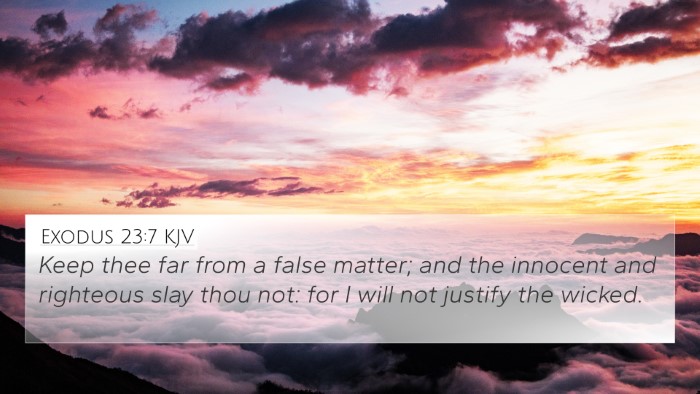 Exodus 23:7 (KJV) »
Exodus 23:7 (KJV) »
Keep thee far from a false matter; and the innocent and righteous slay thou not: for I will not justify the wicked.
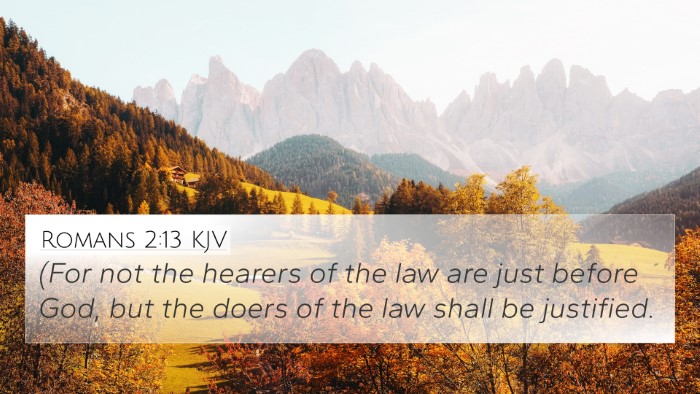 Romans 2:13 (KJV) »
Romans 2:13 (KJV) »
(For not the hearers of the law are just before God, but the doers of the law shall be justified.
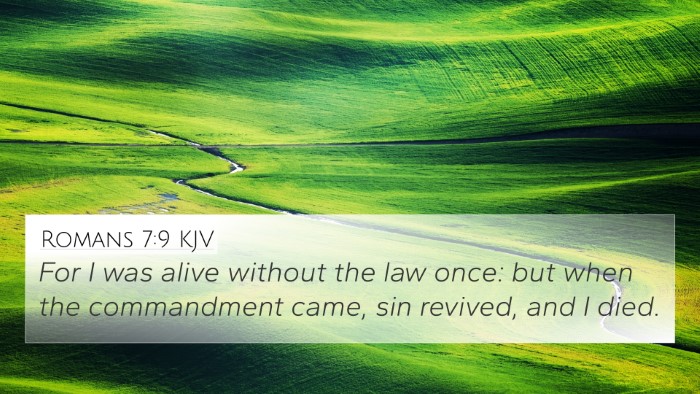 Romans 7:9 (KJV) »
Romans 7:9 (KJV) »
For I was alive without the law once: but when the commandment came, sin revived, and I died.
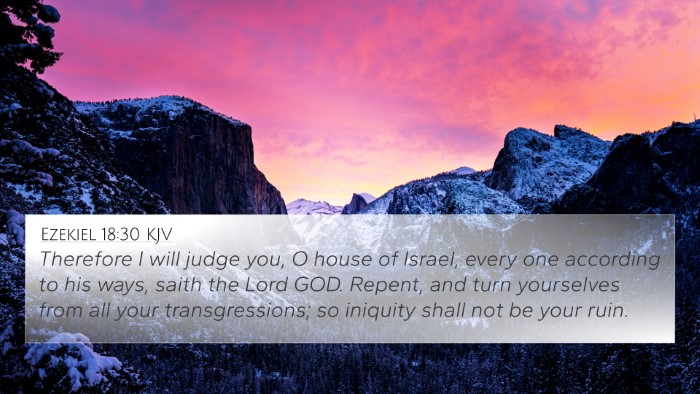 Ezekiel 18:30 (KJV) »
Ezekiel 18:30 (KJV) »
Therefore I will judge you, O house of Israel, every one according to his ways, saith the Lord GOD. Repent, and turn yourselves from all your transgressions; so iniquity shall not be your ruin.
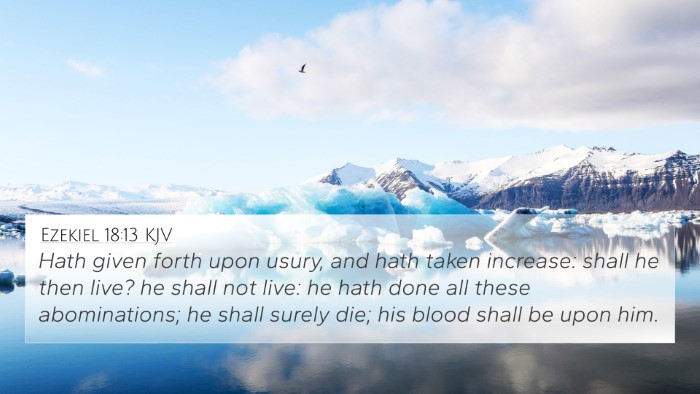 Ezekiel 18:13 (KJV) »
Ezekiel 18:13 (KJV) »
Hath given forth upon usury, and hath taken increase: shall he then live? he shall not live: he hath done all these abominations; he shall surely die; his blood shall be upon him.
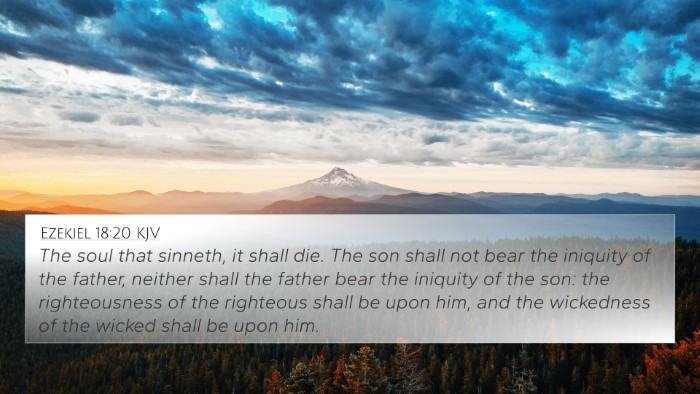 Ezekiel 18:20 (KJV) »
Ezekiel 18:20 (KJV) »
The soul that sinneth, it shall die. The son shall not bear the iniquity of the father, neither shall the father bear the iniquity of the son: the righteousness of the righteous shall be upon him, and the wickedness of the wicked shall be upon him.
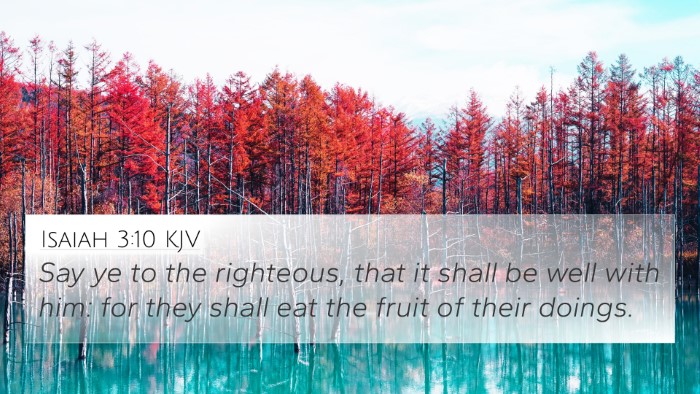 Isaiah 3:10 (KJV) »
Isaiah 3:10 (KJV) »
Say ye to the righteous, that it shall be well with him: for they shall eat the fruit of their doings.
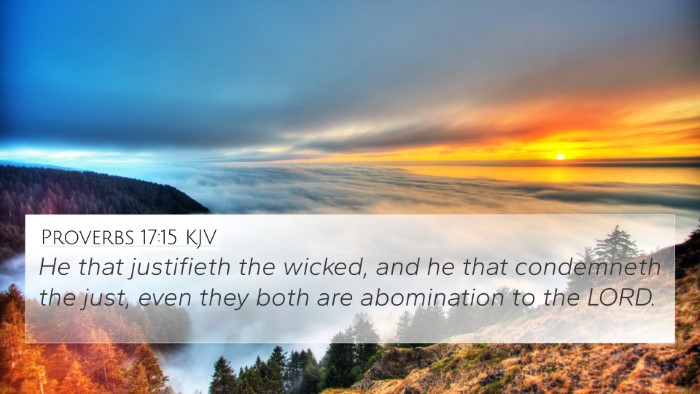 Proverbs 17:15 (KJV) »
Proverbs 17:15 (KJV) »
He that justifieth the wicked, and he that condemneth the just, even they both are abomination to the LORD.
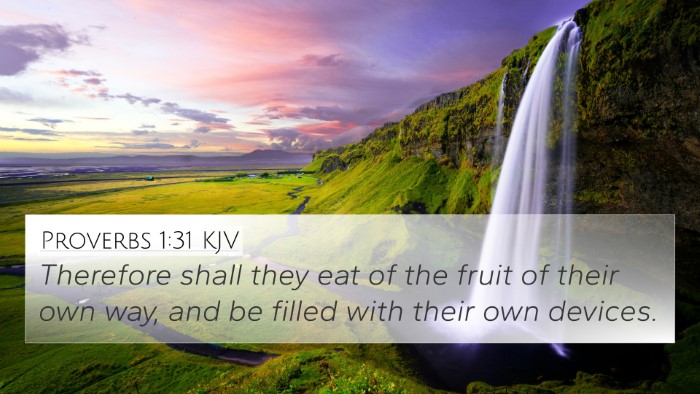 Proverbs 1:31 (KJV) »
Proverbs 1:31 (KJV) »
Therefore shall they eat of the fruit of their own way, and be filled with their own devices.
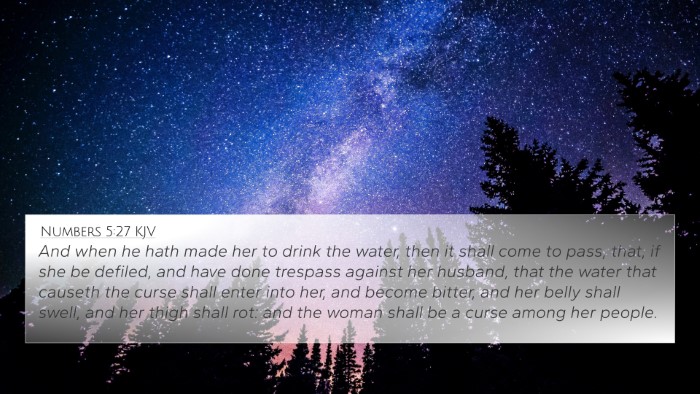 Numbers 5:27 (KJV) »
Numbers 5:27 (KJV) »
And when he hath made her to drink the water, then it shall come to pass, that, if she be defiled, and have done trespass against her husband, that the water that causeth the curse shall enter into her, and become bitter, and her belly shall swell, and her thigh shall rot: and the woman shall be a curse among her people.
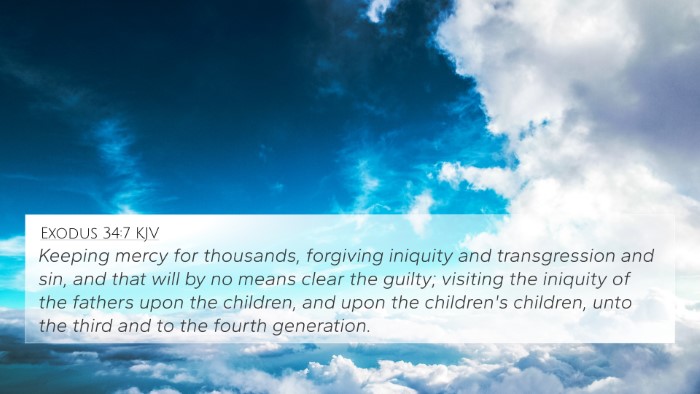 Exodus 34:7 (KJV) »
Exodus 34:7 (KJV) »
Keeping mercy for thousands, forgiving iniquity and transgression and sin, and that will by no means clear the guilty; visiting the iniquity of the fathers upon the children, and upon the children's children, unto the third and to the fourth generation.
